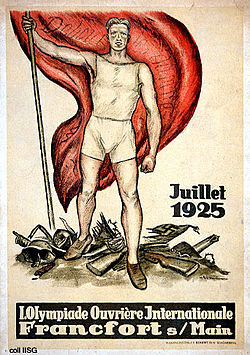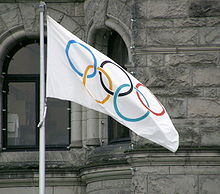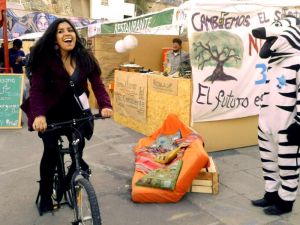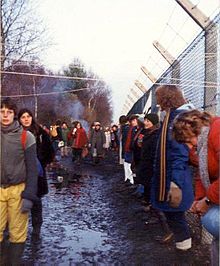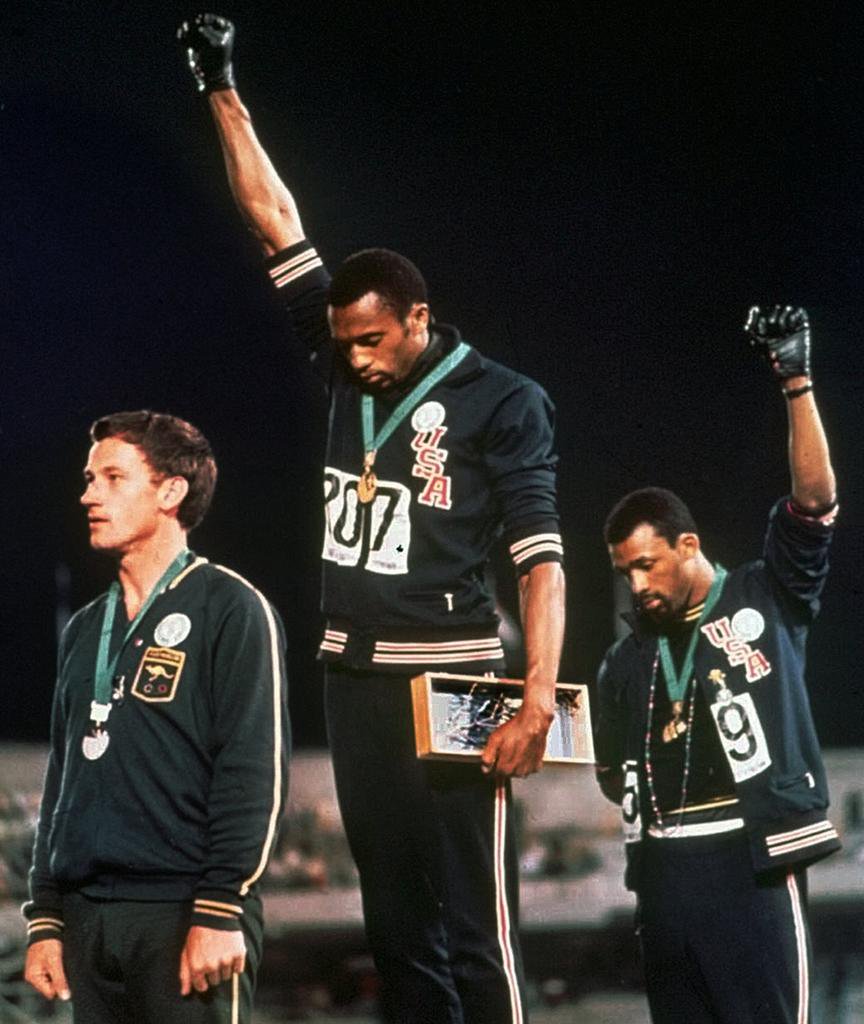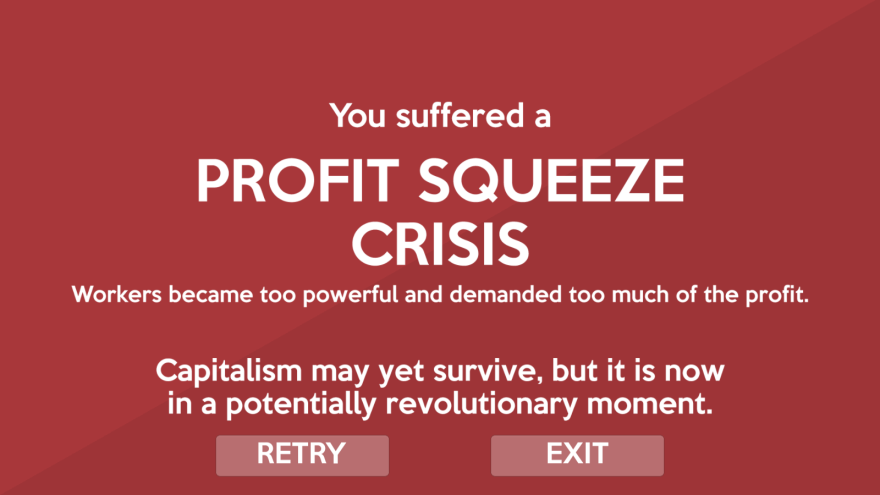Other Voices: The Connexions Newsletter
August 13, 2016
This issue: Sports and Politics
Sports in general, and the Olympics in particular, have never been free of politics. Allegations of bribery and cheating had already been part of the Olympics for centuries before that noteworthy day in 67 AD when the judges proclaimed the Emperor Nero winner of the Olympic chariot race even though he had been thrown from his chariot and failed to complete the race.
No doubt the judges who crowned Nero were keenly aware of his proclivity for executing those who displeased him. In the modern sports era, survival and success depend largely on the favour of corporations, whose power to provide or withhold funding and sponsorships now shape every aspect of sport, including athletes’ incomes and lifestyles. It is now difficult to remember that only a few decades ago, corporate logos were strictly forbidden at Olympic events, while athletes were prohibited from accepting any kind of payment for their involvement in sports. The corporate conquest of sports closely parallels the corporate colonization of nearly all aspects of modern life. Accompanying this in recent years has been the increasing injection of militaristic content into sports spectacles. In Canada, hockey games are now commonly preceded by rituals honouring militarism. In the United States, similar spectacles have been staged for years.
In this issue, we feature resources which remind us that resistance to the commercialization, corporatization, and militarization of sports is also part of our heritage. We recall the International Workers’ Olympiads which took place between 1925 and 1937, and the workers’ sports organizations which flourished in a number of countries.
With the Rio de Janeiro Olympics under way, we feature an analysis of the way a constitutional coup is being carried out in Brazil while the attention of the media is on the sports spectacle in Rio.
We also look at the extraordinary witchhunt under way against Russian athletes. Various sports federations have taken the unprecedented step of banning Russian athletes from entire sports, not for anything the individual athletes themselves have done, but to punish the Russian government. The pretext for these bans is a hurried report by a Canadian lawyer which claims that the Russian government (or, as the media routinely say, “Putin”) carried out a mass doping program. While there are undoubtedly Russian athletes who used performance-enhancing drugs (as there are in many other countries), most of the ‘evidence’ underlying these sweeping allegations is based on the word of one man, a former Russian coach who now lives and works in the United States. Russian officials and athletes were not interviewed and were not given any opportunity to give their side of the story. Nor were Russian athletes given the opportunity to undergo drug tests to determine whether they had in fact taken performance-enhancing drugs. They were simply banned without any pretense of due process. Meanwhile athletes from other countries, such as the United States, who have used banned drugs in the past are being allowed to compete.
Distracted though we are by sports, we do have some other content in this issue, including an analysis of the recent coup attempt and counter-coup in Turkey, and a story about a movement for ‘conscious food’ in Bolivia.
In the Organizing section, we remember the women of Greenham Common, whose nineteen-year protest at a British nuclear weapons site developed new ideas about organizing and civil disobedience.
As always, we invite you to share this newsletter with your friends. You can forward this email, or send them the link to the Other Voices home page on the Connexions website at www.connexions.org/Media/CxNewsletter.htm.
If you'd like to subscribe and receive this newsletter by email every two weeks, please use this form.
Your feedback is appreciated - and so are donations to keep us doing what we're doing!

Topic of the Week
Sports and Politics
Sports and politics have always been intertwined, though perhaps never as much so as in the current era. Find resources and the relationship between politics and sports, today and in the past, in the Connexions Subject Index here.
This Week on Connexions.org
The Olympic Smokescreen for the Brazilian Coup
While the world focuses on the Rio Olympics, the coup government in Brazil is moving rapidly to impeach the democratically elected president Dilma Rousseff. The Olympics have become their smokescreen. The world's media are gathered in Rio, but this is one story they're not interested in covering. Telesur reports on what is going on behind the scenes. Read more
Keywords: Brazil – Regime Change
Ban of Russian Olympic Team: Cold War at its 'Best'
The New Cold War is now in full swing and the West is using both old and new tactics, in order to demonize and discredit all of its opponents: from Russia to China, Venezuela, North Korea, South Africa and Iran. The War against the 'coalition of unwilling' is constantly diversifying. Propagandists in North America and Europe are inventing new weapons of mass intellectual and information destruction. Nothing is left intact. The latest ‘battle’ is truly unconventional, one could even say ‘innovative’ - it is an attempt to demonize Russian athletes and prevent them from participating in the Olympic games. Read more
Keywords: Olympics – Witchhunts
The World Cup and the Corporatization of Soccer
Huge global sporting contests, their boosters promise, will transform the nature of the host country. The billions South Africa poured into hosting the World Cup were touted by some as a form of development. The result? The month-long euphoria of the contests was followed by the hangover of dealing with an expensive unused or underused stadium infrastructure scattered across that developing country. Host countries pay FIFA for the privilege of hosting the competition, then foot the bill for most of the tournament, while FIFA takes most of the revenues. Read more
Keywords: Football – Sports History
Turkey: A war of two coups
On 15 July 2016 a section of the Turkish armed forces attempted to take power from the government of Recep Tayyip Erdogan and the AKP, came very close to its objective, but was ultimately defeated. This article examines the causes of the failed coup and its social and political effects on the Turkish society. Read more
Abundance for everybody - 'conscious food' supports a thriving urban activist community in Bolivia
A group of Bolivian activists engage in 'conscious eating' while resisting capitalism and climate change and valuing everyone's work. Finding alternative ways to live and work together around a new set of values is part the transition they are working to achieve. They are re-imagining economic and social relations by putting community needs ahead of individualistic personal benefit and generating an economy with values very different from how society operates at large. Read more
Keywords: Economic Alternatives – Food
Website of the Week
teleSUR
A Latin American multimedia platform providing coverage of Latin American and world issues, and especially of the global South. Working to promote the struggle of peoples for peace, self-determination, respect for human rights and social justice.
Find them here or www.telesurtv.net/english
Keywords: Alternative media – Latin America
Book of the Week
The Struggle for Canadian Sport
By Bruce Kidd
Bruce Kidd, a former track star, documents the development and transformation of Canadian sport in the twentieth century. Canadian sports were turned on their head during the years between the world wars. The middle-class amateur men's organizations which dominated Canadian sports since the mid-nineteenth century steadily lost ground, swamped by the rise of consumer culture and badly battered and split by the depression. In The Struggle for Canadian Sport Bruce Kidd illuminates the complex and fractious process that produced the familiar contours of Canadian sport today -- the hegemony of continental cartels like the NHL, the enormous ideological power of the media, the shadowed participation of women in sports, and the strong nationalism of the amateur Olympic sports bodies. Read more
Keywords: Canadian Sports – Sports History
Organizing
The women of Greenham Common taught a generation how to protest
There is a urgent need for the environmental movement and the labour movement to work together. This requires seriously addressing the question of what happens to the working people whose jobs depend on the current economic system, the system we have to replace. Read more
Keywords: Protest – Grassroots Peace Activists
People's History
International Workers' Olympiads
International Workers' Olympiads were an international sporting event arranged between 1925 and 1937 by Socialist Workers' Sport International (SASI). It was an organisation supported by social democratic parties and International Federation of Trade Unions. Workers' Olympiads were an alternate event for the Olympic Games. The participants were members of various labour sports associations and came mostly from Europe.
The Workers' Olympiads were created as a counterweight for the Olympic Games, which were criticized for being confined for the upper social classes and privileged people. The international workers' sports movement did not believe that the true Olympic spirit could be achieved in an Olympic movement dominated by the aristocratic leadership. Pierre de Coubertin, founder of the International Olympic Committee, had always opposed women's participation and supported the cultural superiority of white Europeans over other races. His followers, Henri de Baillet-Latour and Avery Brundage, were openly anti-Semitic and both collaborated with the Nazis. On the contrary, the Workers' Olympiads opposed all kinds of chauvinism, sexism, racism and social exclusiveness. The Olympic Games were based in rivalry between the nations, but the Workers' Olympiads stressed internationalism, friendship, solidarity and peace. Read more
Keywords: Sports – Sports History
From the Archives
The White Man in That Photo
One of the most famous photos in sports history depicts John Carlos and Tommie Smith standing on the Olympic podium in Mexico City in 1968, holding their black-gloved fists in the air in a black power salute. There is a third man in that photo: Peter Norman, a white Australian who won the silver medal in that 200-meter race, and his story is much less known. Read more
Keywords: Olympic History – Sports History
Game of the Week
Crisis Theory
At last, what we’ve all been waiting for: a video game that let’s you experience the contradictions of capital accumulation as analyzed by Karl Marx – without having to become a capitalist yourself. More
Keywords: Capitalist Crises – Games
Connexions Calendar
August 11 – 21, 2016
Vancouver Queer Film Festival
Celebrating the best in independent queer cinema, the Vancouver Queer Film Festival is Vancouver's second largest film festival and the largest Queer arts event in Western Canada. The festival hosts a variety of performances, workshops, panels, parties and more, facilitating a unique queer space for 11 days each August.
August 13, 2016
East Toronto Canvass for $15 and Fairness
East Enders in Toronto, let's make some noise! Join us in the neighbourhood to spread the word and help build the Fight for $15 & Fairness movement. Communities across Ontario are mobilizing to strengthen working conditions in our province - including recent actions in Oshawa, Rexdale, West Toronto, Sudbury and Ottawa.
August 23, 2016
International Day for the Remembrance of the Slave Trade and Its Abolition
The date August 23 was chosen as the International Day for the Remembrance of the Slave Trade and Its Abolition because during the night of August 22 to August 23, 1791, on the island of Saint-Domingue (now known as Haiti), an uprising began which set in train events which were a major factor in the abolition of the transatlantic slave trade.
The Connexions Calendar is an online calendar that exists to advertise events that support social justice, democracy, human rights, ecology, and other causes. We invite you to use it to promote your events. Adding events to the Connexions Calendar is FREE. We'll give you a username and password which you use to log on. Use the contact form to arrange for a username and password. Read more →
Seeds of Fire
August 18, 1823
Demerara uprising
Uprising of tens of thousands of slaves in the British colony of Demerara (in what is now Guyana). The rebellion is defeated, with more than 100 slaves killed and other executed afterwards. However, the events cause anger and revulsion in Britain and help push public sentiment for the abolition of slavery.
August 19, 1953
CIA-sponsored coup in Iran
In Iran, a coup sponsored and directed by the CIA overthrows liberal-leaning Premier Mohammed Mossadegh, who had nationalized the Iranian oil industry. The coup puts the pro-Western Shah Mohammed Pahlevi into power, who quickly gives control of the oil industry back to U.S. and British oil companies. The coup becomes the defining event in modern Iranian history, leading to the 1979 revolution and to Iran’s continuing suspicion of and hostility to the United States.
August 19, 1957
Murdochville Strike
Violence breaks out at the copper miners’ strike in Murdochville, Quebec when police are ordered by Premier Duplessis to suppress the strike. The government’s actions help to turn public opinion against the reactionary Union Nationale regime, laying the groundwork for the Quiet Revolution.
August 22, 1791
Outbreak of the Haitian Revolution
Slaves of Saint Domingue (Haiti) rise in revolt, triggering the Haitian revolution.
August 25 – September 2, 1921
Battle of Blair Mountain
Coal miners in West Virginia battle police, armed strikebreakers, and the U.S. army in what comes to be known as the Battle of Blair Mountain. For five days, between 10,000 and 15,000 coal miners seeking union recognition fight against the government and the coal companies. More than 100 are killed, hundreds are injured. In the end, the miners lose the battle, but prevail in the longer term: by 1935, all miners in southern West Virginia win union recognition and better wages and working conditions.
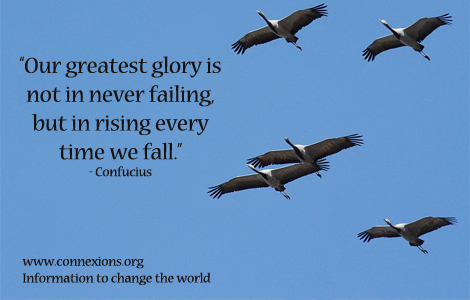
Your support is needed to keep Connexions going
All of the work of the Connexions project is done by volunteers, but our expenses include rent, phone and computer costs and technical support, as well as expenses related to our ongoing project of converting printed archival materials into digital formats. You can make a one time or regular monthly contribution through the donate page on the Connexions website.
Bequests
Many of us have made working for social justice a lifetime commitment. If you are thinking about leaving a legacy for social justice that will live on, you might want to consider leaving a bequest to Connexions in your will. If you'd like to discuss this option, please contact us or see the Bequest page.

